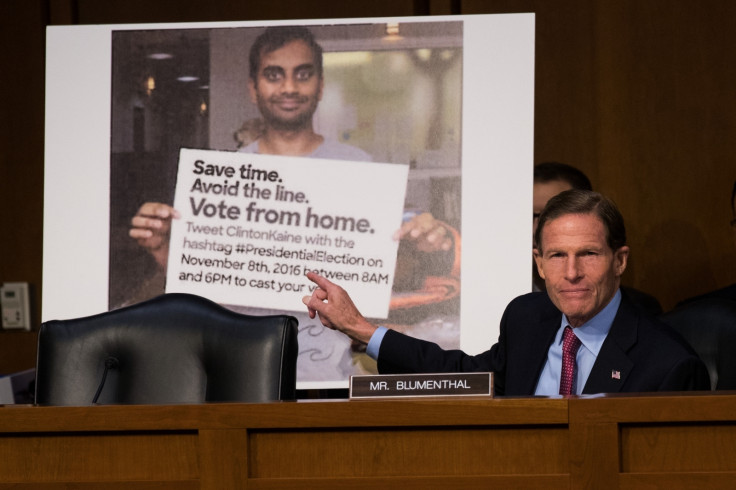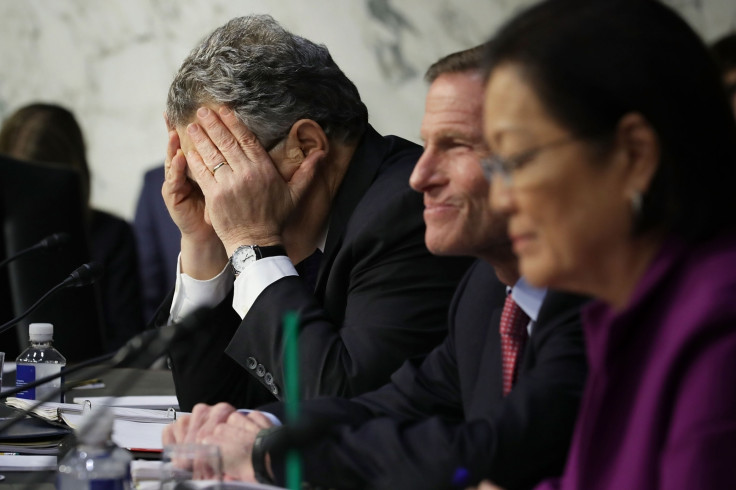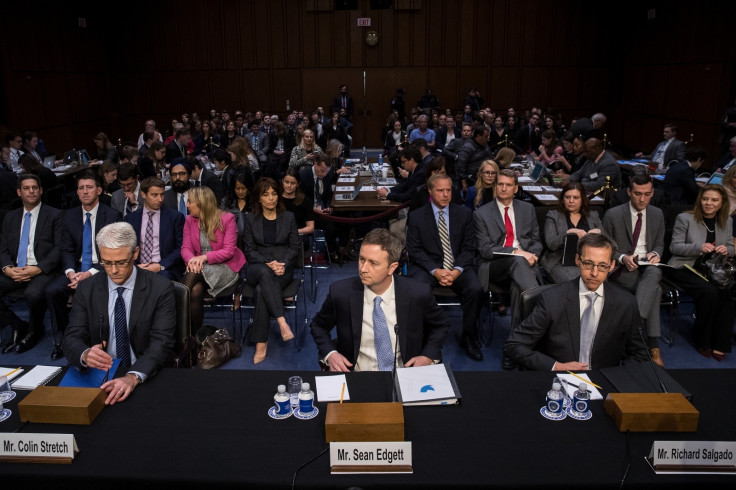Did Facebook, Twitter and Google do enough to stop Russian election interference?
The internet giants faced questioning from US lawmakers at a Senate hearing.

Internet giants Facebook, Twitter and Google faced a US Senate committee on Tuesday (31 October) in a hearing that produced little new information, but served as a forum for several heated exchanges between senators and the companies' representatives.
Going into the Senate Judicary Committee's hearing, the sub-committee chairman, South Carolina Senator Lindsay Graham, had already put forward a statement suggesting that efforts by social media platforms to tackle concerns of use by terrorist or by foreign actors seeking to influence other countries had "been unsuccessful".
Ranking member Diane Fienstein had sent letters on Friday 28 October asking Twitter and Facebook to detail efforts they had undertaken to identify accounts linked to Russia-backed influence campaigns. On the day, she referred to the power of the social media giants as "frightening".
Senators questions quickly went to the subject of apparent Russian interference in the 2016 president election, with queries ranging from the nature of Russian activities to the possibilities that another state hostile to the US could undertake a similar attempt. In one notable scene, firebrand Minnesota Senator Al Franken angrily demanded to know why Facebook could not put together the data points that some political ads were being paid for in the Russian currency, rubles.
The response from Facebook's general counsel, Colin Stretch, was: "In hindsight, we should have had a broader lens". But that reply wasn't good enough for Franken who retorted: "You put billions of data points together all the time... you can't put together rubles with a political ad and go 'hmmn those two data points describe something bad'?"
Franken then asked whether Facebook would commit to not accepting certain foreign currencies for political advertising, but Facebook's counsel pushed back saying that it would be easy for foreign actors to simply pay in another currency - this was again not enough for Senator Franken who saw no reason why Facebook would accept, in his example, the North Korean won.

Twitter's General Counsel, Sean Edgett noted measures the platform had already undertaken, including taking news channels purportedly linked to the Russian government, RT and Sputnik, off their advertising program.
According to Edgett, one interesting piece of information from their investigations was that much of the content before the election was aimed against Democratic presidential candidate Hillary Clinton, while after the election content was aimed at questioning the legitimacy of her rival, President Donald Trump.
Louisiana Senator John Kennedy pressed Facebook on how much they could know their advertisers were not foreign governments hiding behind shell corporations: "The truth of the matter is that you have five million advertisers... you don't have the ability to know who every single one of those advertisers is," Kennedy said.
"The truth of the matter is that you have five million advertisers... you don't have the ability to know who every single one of those advertisers is,"
Other senators expressed worries about the internet company's abilities to censor certain speech with Texas Senator Ted Cruz using the example of a Republican senate candidate having their campaign video banned from Twitter's advertising over a "baby body parts" comments used to highlight an anti-abortion stance.
The companies' bottom lines also came into question with Feinstein asking whether Google having RT's channel on YouTube amounted to the company paying the Russian channel - Google's Director of Law Enforcement and Information Security, Richard Salgado responded that he would reply in writing with better information.

Apart from some questioning on terror videos, Google largely took a backseat to the two social media platforms as they were grilled on whether their advertising programs, and specifically targeted ads could still be used to sow discord in America by a foreign actor.
All three companies said they have ongoing investigations into how their platforms may have been used by foreign actors during the last presidential campaign.
For one Senator, the three senior members of the companies' seated in front of him were disappointing. "I wish we had the executives of your three companies before us today," Delaware's Senator Christopher Coons noted.




















